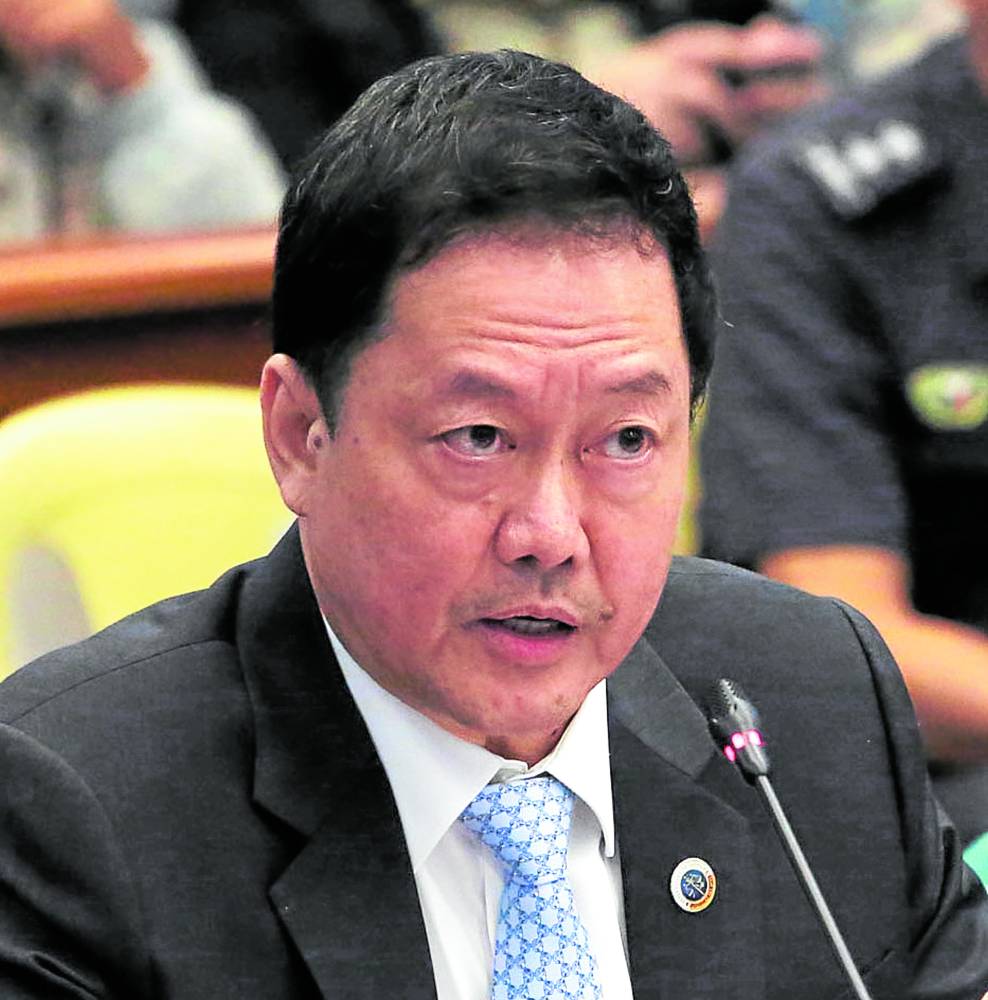
Solicitor General Menardo Guevarra
It is now “impossible” for the Commission on Elections (Comelec) to credibly hold the barangay and Sangguniang Kabataan (SK) elections as originally scheduled on Dec. 5 this year due to the lost time in preparations, according to Solicitor General Menardo Guevarra.
The former justice secretary explained the Comelec’s predicament to the Supreme Court on Friday during the oral arguments on the legality of the law signed by President Marcos on Oct. 10 that postponed the village and youth polls to Oct. 30 next year.
The enactment of Republic Act No. 11935 forced the Comelec to put a halt to election preparations including the printing of ballots and procurement of materials and services, he said.
“In our consultation, Comelec made clear that it is now impossible to hold the elections on Dec. 5, 2022, in view of the passage of RA 11935 and the consequent suspension of the preparatory activities crucial to the conduct of the barangay elections,” Guevarra told the justices during the in-person oral arguments.
“Forcing the holding of elections under these circumstances may have far-reaching implications on our democracy and in the trust and confidence of the electorate on the outcome of these important electoral exercises,” he warned.
Election lawyer Romulo Macalintal, however, countered that should the Supreme Court uphold his petition and nullify as unconstitutional further acts by Congress to postpone scheduled elections, the Comelec could still hold the barangay and SK elections on a date “reasonably close” to Dec. 5 this year.
“I don’t believe. Maybe not on Dec. 5, but on a date very close to the date provided for,” he said under questioning by Associate Justice Antonio Kho Jr., who was Comelec commissioner until February this year.
One month leeway
When Kho asked if Congress had to enact another law to reset the barangay elections, Macalintal said there was no more need since the Omnibus Election Code of 1985 provided the Comelec the authority to postpone elections.
He was referring to Section 5 of the Omnibus Election Code, which states that in case of serious causes like violence or force majeure, the Comelec may postpone elections to a date, which should be reasonably close to the original date “but not later than 30 days after the cessation of the cause for such postponement.”
Kho also called Comelec Chair George Garcia to explain that it was already “impossible” to have the barangay and SK elections on Dec. 5, regardless of the eventual decision of the Supreme Court.
Garcia said since the law postponing the elections was enacted on Oct. 10, the Comelec stopped the printing of ballots and did not proceed with the procurement of indelible ink, which expires within a year.
He said the Comelec was supposed to print 3 million ballots a day, and could have printed 36 million ballots by Oct. 21 had the printing not stopped on Oct. 10.
“We can’t finish printing [all the needed ballots] by Dec. 5,” Garcia said.
READ: Marcos defends deferment of barangay, SK polls: ‘We have sufficient precedent’ for it